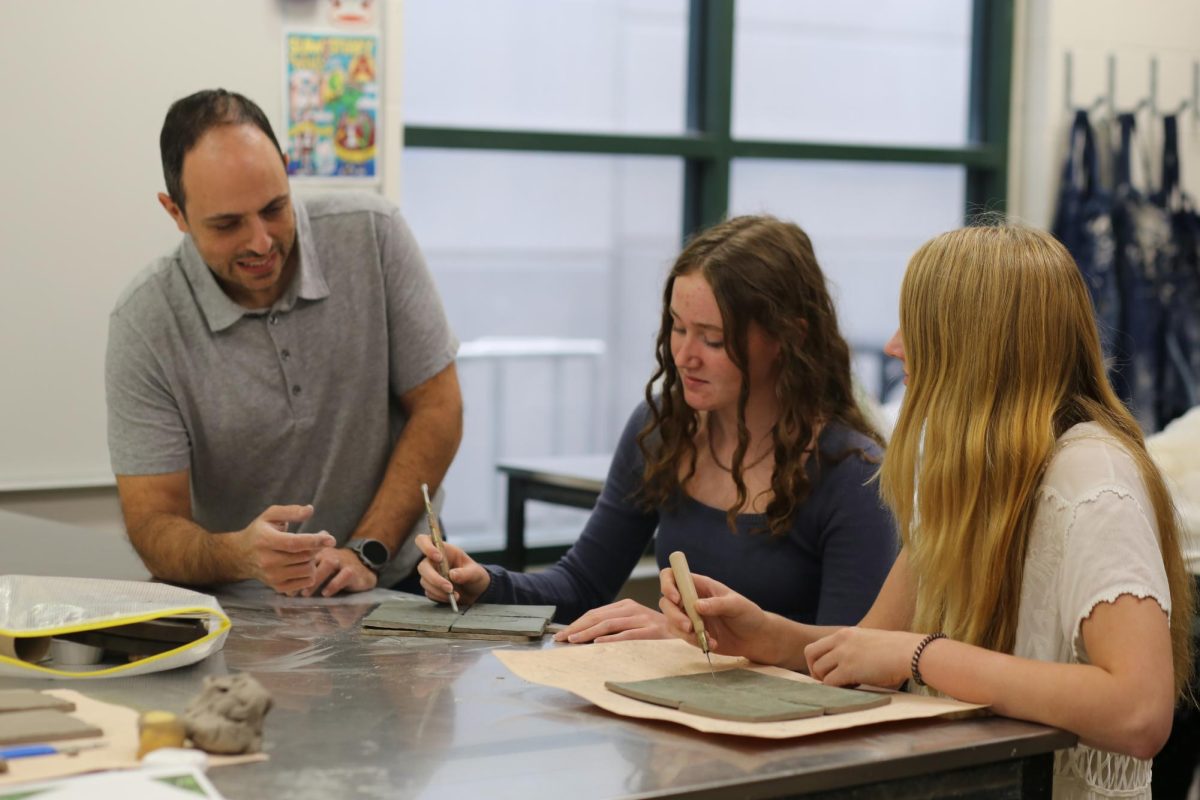As Trinity students load french fries onto their plates, many seem to overlook the grow- ing pile of fries on the floor. Something that seems like no big deal is actually a huge source of food waste for the Grille. Food Director and Head Chef Christopher Behrens estimates that around 5 pounds of fries are wasted every day from falling on the floor alone.
At the Trinity Prep Grille, there is a huge variety of food that students can get every day. An estimated number of 400 students go in and out everyday. However, oftentimes a lot of the food goes to waste. Behrens believes that food waste is an important problem. Along with the Grille staff, Behrens works hard to be conscious of how much food they make and order each week.
“We usually utilize everything for different aspects,” Behrens said. “We make sure to use extra food in creative ways. For example, we use Fridays as a day to ‘clean out the fridge,’ where we use any leftover food from the week. This helps us reduce our weekly food waste.”
Throughout his years as a chef, Behrens has learned how to manage food waste in the kitchen. He has figured out how to order food for each week without ordering too much.
“The longer I’ve worked here the easier it is to work out how much food to get for the week,” Behrens said. “We use production records to help us determine how much food we will need to order. These records help us reduce the amount of food waste we produce by having a set number.”
One of the main issues that the Grille faces regarding food waste is portion control. Many times, students will take more than they will actually eat and in turn, end up wasting a lot of food.
“I think we are consumer-oriented,” Behrens said. “Everybody wants bigger portions, and many times when they have so much food, they don’t eat all of it. Reducing portion sizes can help prevent food waste.”
Portion sizes are not only an issue in the workplace, but in the household too. People find themselves buying too much food, and then eventually getting rid of it. According to Recycle Track Systems Incorporated, the United States produces 1.4 billion tons of food waste every year, 43% of that food waste coming from households.
One way to reduce household food waste is by composting. Composting is a method of decomposing waste materials to make it into a natural fertilizer. Biology teacher Bryan Moretz is an avid composter, who has been composting on and off for around 25 years.
“I started composting with my father — he was an avid gardener,” Moretz said. “For me, composting means that I’m able to take those leftover foods and essentially put them back into the environment.”
Composting has a huge impact on the reduction of food waste. The United States Environmental Protection Agency estimated that 2.6 million tons of food was composted in 2018, which is around 4.1% of wasted food.
“Composting means less waste in landfills,” Moretz said. “We try to conserve as much as we can. If we take waste material like fruits, plants, and organic substances and put it back into the soil, we’re making sure that we don’t fill more landfills over a longer period of time.”
Composting isn’t the only way to help reduce food waste. There are numerous ways to reduce personal food waste that require little effort. Awareness is a big step. It’s important to think about things like how much food you are taking, or how throwing away a full plate might be harmful.
“It’s always easier to add more than take it away,” Behrens said. “We always encourage students to come back for seconds rather than get way too much and never finish it.”
While there are so many ways to easily reduce personal food waste, why aren’t more people aware of it? A study from JAHR bioethics states that people don’t see food as some- thing valuable, but as a given that’s accessible.
Food waste due to excessive consumption by households is becoming more prevalent as the amount of food produced has brought society to a point where food is being taken for granted in many developed countries.
The more food waste is being produced in households, the more it is impacting people who don’t have regular access to food. According to the World Food Program USA, mass food waste is one of the main causes of worldwide hunger.
“So many people are going hungry because of [food waste],” Behrens said. “I know you can’t solve all of the world’s problems, but it helps to be conscious of things like that. Contributing to an already big problem when you can help is just hurtful. It really is.”















